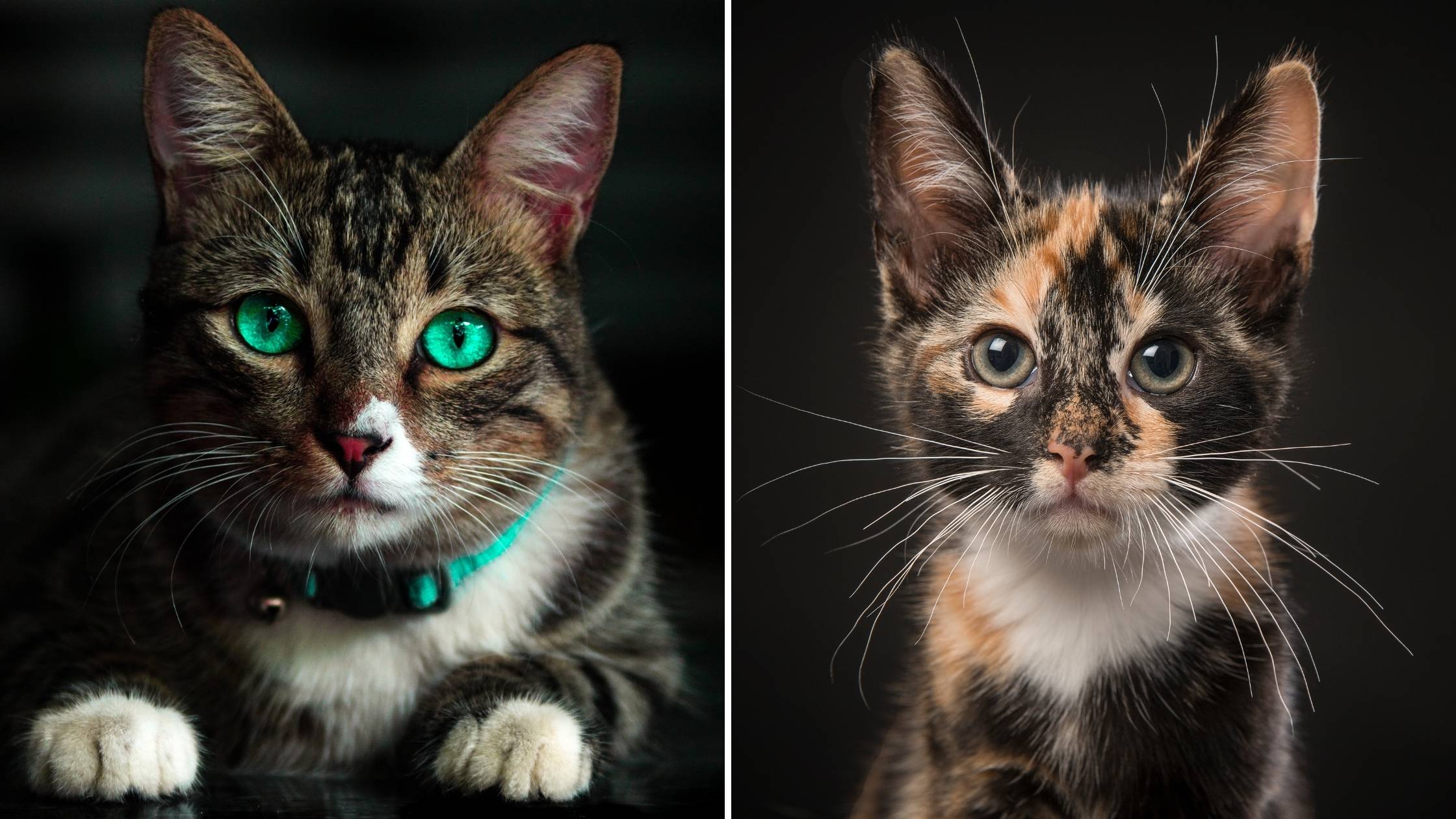Last Updated on 05/25/2021 by Veronica Jones
A cat’s whiskers aren’t there just to make your kitty look cute. Cats’ whiskers guide them through daily functions from the moment they are born such as finding their way back to their mum, sensing prey and understanding the world around them. Understanding why felines have whiskers is important to keep them happy and healthy. But what happens when your feline’s whiskers fall out? Do cats whiskers grow back? Let’s find out…
Do cats whiskers grow back?
Yes, your cat’s whiskers should grow back on their own in the same way that a dog’s whiskers will. A cat fight or medical condition could cause whiskers to fall off, but they will grow back over time. Whiskers should never be cut, plucked or trimmed as they are vital to a cat’s survival instinct.
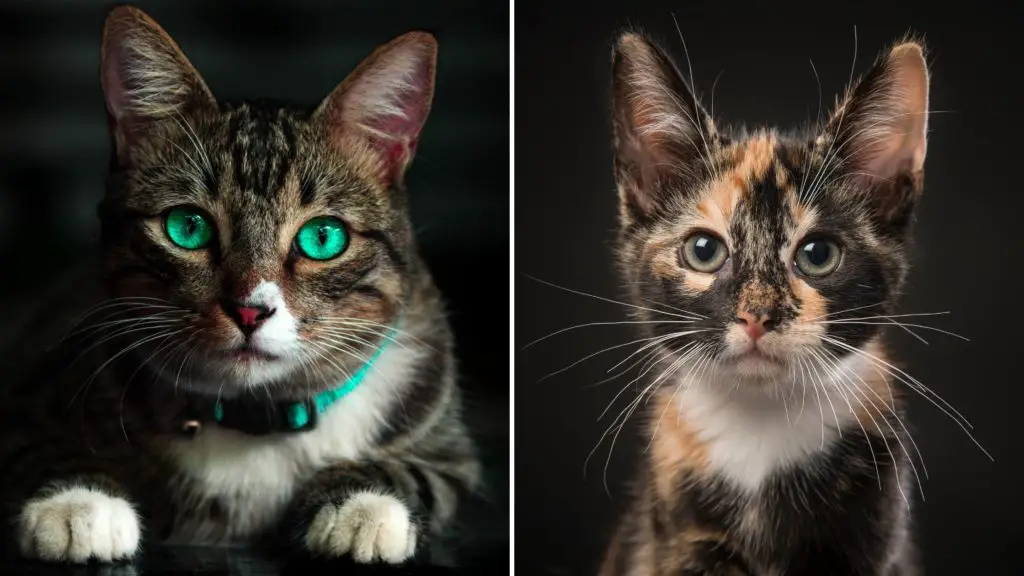
What is a whisker?
The scientific name for a whisker is vibrissae. A whisker is a longer, stiffer type of hair that goes much deeper into a cat’s body than their other hair and is connected to the nervous and muscular system. When an object touches a cat’s whisker it vibrates and sends a message to the cat’s brain.
Why do cats have whiskers?
If you sometimes get tempted to cut your cat’s unruly whiskers, here are the reasons why cats need them to survive.
A cat’s whiskers help it to navigate in the dark: whiskers act as touch receptors and can help your cat to detect any changes in its surroundings. Whiskers help alert felines to any dangers, especially in the dark when they can’t rely on their eyes.
Whiskers prevent cats from running into things and getting stuck in small spaces: whiskers act as a GPS for kitties. A cat will know if they can fit in something if their whiskers fit. They can also sense what’s in front of them with these special hairs. Even when a cat is fast asleep, its whiskers are working hard to protect them, which is why it’s virtually impossible to sneak up on your cat while it is sleeping.
Whiskers can help a kitty catch its prey: cats are long-sighted, so they use their whiskers to help them catch prey that is close by. The highly sensitive hairs can tell a cat the location and size of its prey.
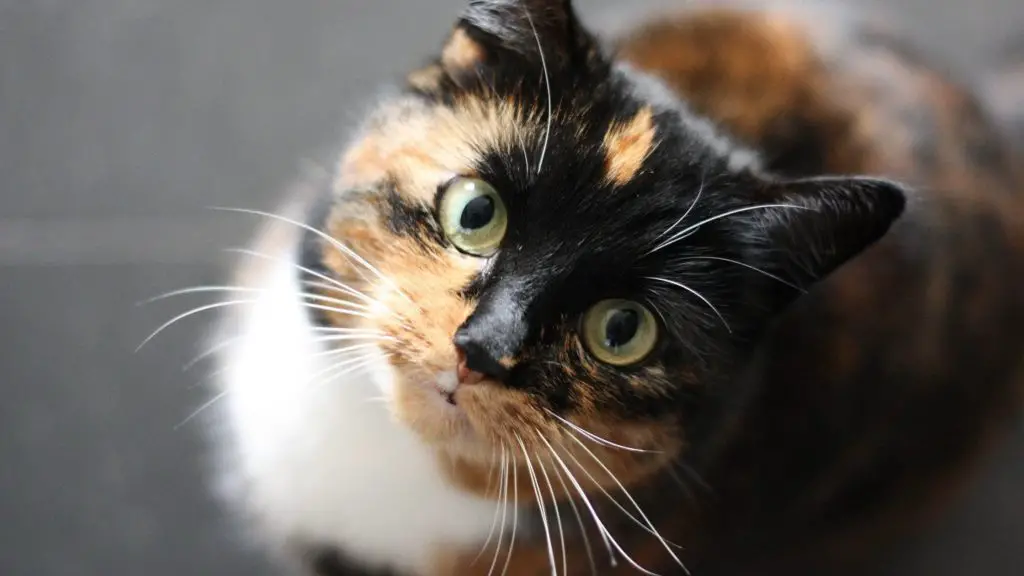
Whiskers can help you understand your cat’s current mood: for example, if they are pushed forward it can mean that they are excited, playful or curious. Pushed back often means they are scared or nervous. If your kitty’s whiskers are in a neutral position, slightly to the side then it means they are content and relaxed. If you see a cat with its whiskers pulled back tightly, this signals aggression. A cat who is in pain may have its whiskers moving forward rather than sideways.
Many people think that cats are unable to walk and jump without whiskers, which isn’t true. A cat without whiskers may be slightly off-balance, however their tail can also help them to balance and jump.
Because whiskers are such an important part of felines, it’s important to look after them. When petting your cat, try to avoid touching its whiskers.
Do cats whiskers fall out?
Your cat will naturally shed whiskers in the same way they do fur. Sometimes a cat’s whiskers can also be pulled out from playing too hard or getting too close to a candle and burning them off. In these cases, they will naturally grow back over time.
If your cat is losing whiskers frequently, or a large amount falls out in one go, monitor your kitty for any balance or walking issues. You may need to keep extra lights on or help them navigate their food temporarily while their whiskers grow back.
Related Post: Cat trilling: Why do Some Cats Trill?
If your cat is undergoing chemotherapy to treat cancer it may also experience whisker loss.
Consult your veterinarian if you’re concerned about your cats’ wellbeing after losing whiskers.
Interesting facts about cats’ whiskers
- Kittens are born with their whiskers.
- A cat will have approximately 24 whiskers on its face.
- Cats can’t focus on anything that is less than 30cm in front of them, which is why they rely on their whiskers to navigate immediately in front of them.
- Cats’ whiskers are the same width as their body.
- A cat’s whiskers aren’t just on their faces. Whiskers can also be found around your kitty’s eyes, ears, jaw and even forelegs.
- Whisker stress is a real thing for felines. Pressure on the whiskers can cause discomfort or whisker stress.
- Cats don’t like it when their whiskers touch their water bowl. Make sure your kitty has a large enough bowl that is filled to the top to avoid discomfort.
- Whiskers can change color to dark grey or black with age.
- Cats can move their whiskers independently.
- A cat’s whiskers are unique, just like a human’s fingerprints.
- Whiskers will signal your cat’s eyes to blink when they detect something near their face.
- The thickness of a kitty’s whiskers are three times thicker than their body hair.
- Cats can also detect odor through their whiskers.
- Whiskers are so sensitive that they can detect a change in the air current.
- Each whisker is connected to a blood supply under a cat’s skin.
- A sphinx cat has no whiskers and relies on its tail more to judge small spaces.
Do cats’ eyebrows grow back?
Those hairs above your cat’s eyes that look like eyebrows are actually whiskers and should be left alone.
Cats instinctively shut their eyes in the face of danger to protect themselves from injury. These clever hairs above the eyes act as a second pair of eyes, alerting them to any immediate danger.
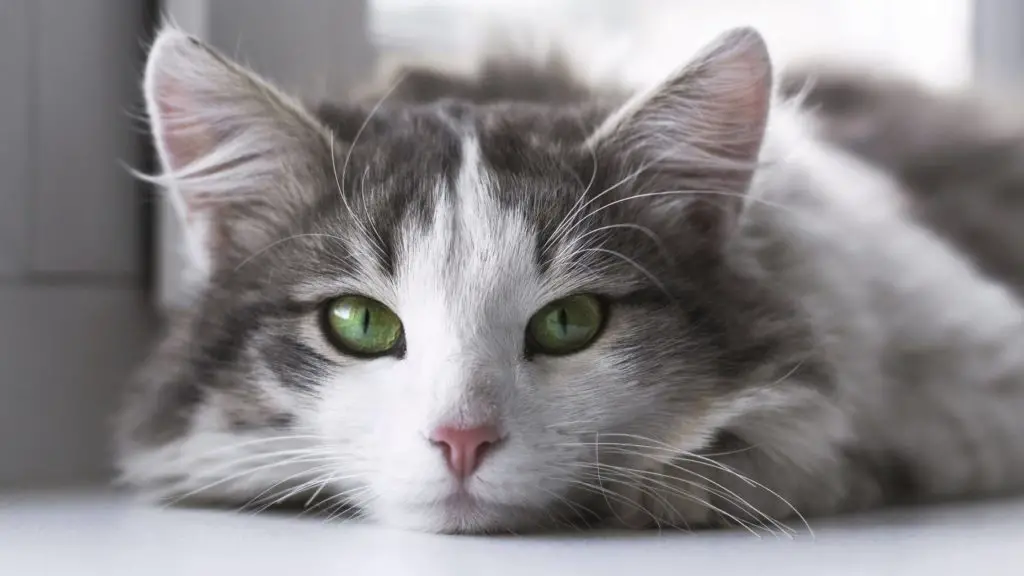
Can I cut my cat’s whiskers?
No, you should never cut your cat’s whiskers. Whiskers are extremely sensitive as they are connected to the nervous and muscular systems.
Cutting or trimming a cat’s whiskers doesn’t hurt them as the nerve endings are at the root, however plucking them can be very painful as hair follicles have a lot of nerves.
Here are the main reasons why you should never cut your kitty’s whiskers:
- You could increase the chances of your cat becoming injured as without their whiskers they are not as aware of their surroundings and openings.
- Your kitty can feel insecure and disorientated without their whiskers.
- Without whiskers your cat may have trouble expressing its mood so you won’t know when something is wrong.
Brushing or excessively touching a cat’s whiskers is also not advised as they could become damaged or break off.
How long does it take for a cat’s whiskers to grow back?
The time it will take for your cat’s whiskers to grow back will depend on your feline’s breed and how long their whiskers are. Long-haired breeds will take longer to grow whiskers than short-haired breeds.
On average, a full set of whiskers will take two-three months to grow back to their full length. The older the cat, the longer it will take. If your cat’s whiskers do not grow back after a few months there could be another condition that is preventing the re-growth such as:
- Feline acne.
- Dermatitis: a skin condition that often indicates an allergy.
- Bacterial infections: can cause hair loss across a cat’s body.
- Fungal infections: ringworm.
- Mite infestations.
Why did my cat lose a whisker?
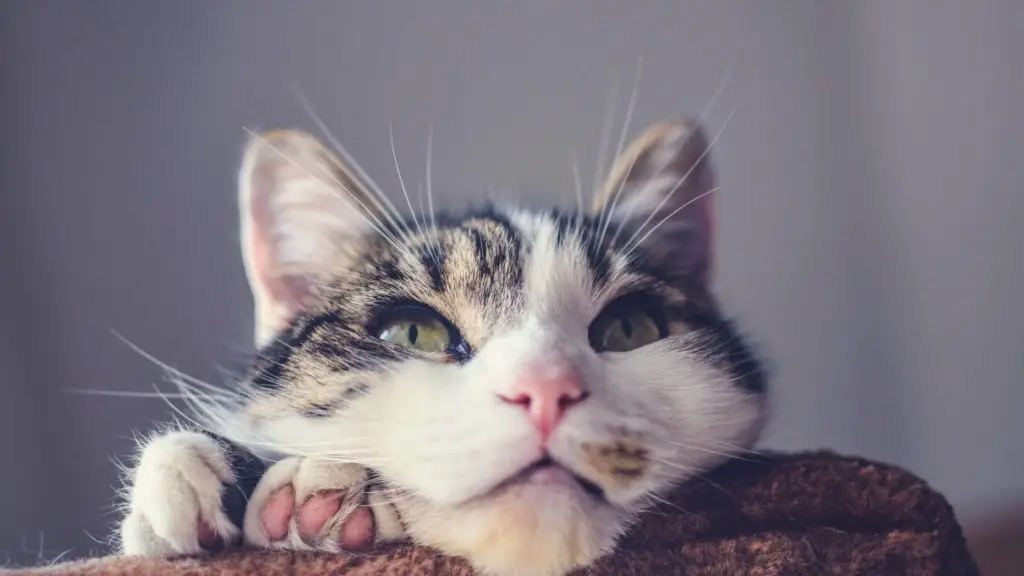
Your kitty may lose a whisker or two for a variety of reasons. The most common causes are:
Stress: if your cat has been through a significant change such as moving home or being introduced to a new family member or pet, whiskers are often shed because of anxiety.
Shedding: to get rid of dead skin and hair, cats shed their whiskers naturally.
Allergies: a sign that your cat is allergic to something could be losing its hair or whiskers.
What is whisker fatigue in cats?
Whisker fatigue occurs when a cat’s whiskers are over-stimulated from being touched too much or repeatedly brushed against food and water bowls.
Symptoms of whisker fatigue include:
- Refusing to eat or drink from usual bowls.
- Meowing next to their bowls and pacing in front of them.
- Pawing at food or water.
- Acting aggressively when food or treats are given to them out of their usual dishes.
A simple solution to preventing whisker fatigue is to change your pet’s bowl to larger ones that are designed not to brush against a cat’s whiskers. Alternatively, a shallow dish such as a saucer with a low side should help. If after making these changes your cat is still suffering from whisker fatigue, contact your veterinarian. You should not cut your cat’s whiskers to try and prevent whisker fatigue, trimming them will actually cause your cat problems with navigating their environment and leave them feeling insecure and anxious.
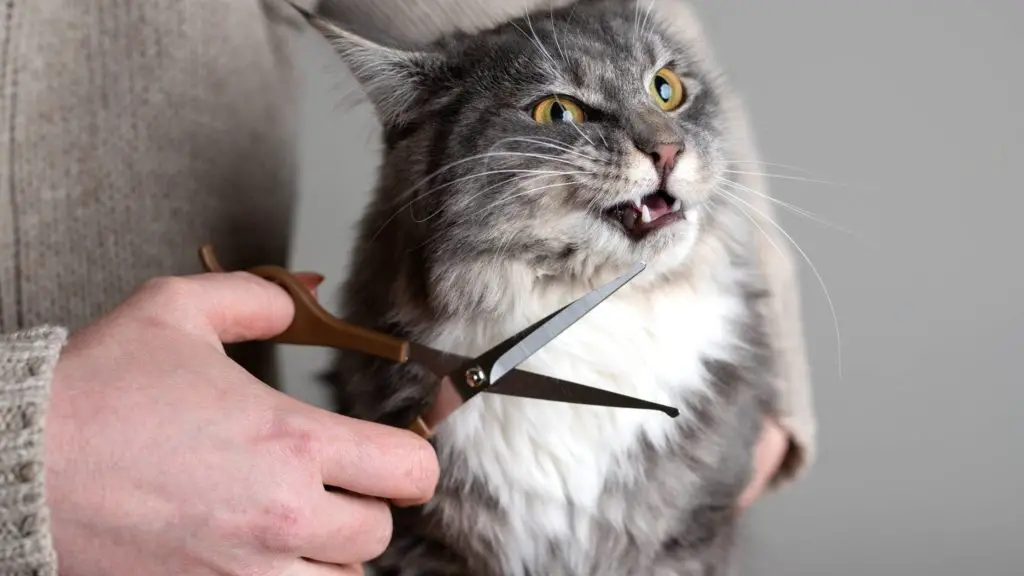
Whiskers are a vital part of your cat’s life
You may have thought about trimming the whiskers on your cat from time to time. Don’t. There are so many fascinating things about our feline friends, and one of them is their whiskers.
Sometimes a cat’s whiskers may fall out on their own. Chances are they will regrow over time but it’s important to monitor them and watch out for any unusual behavior. Never cut, pull or pluck them.
References:
- VCA Hospitals, ‘Why Do Cats Have Whiskers?’, https://vcahospitals.com/know-your-pet/why-do-cats-have-whiskers, Accessed – 10 May 2021
- Purina, ‘Most Popular Cat Breeds’, https://www.purina.com/cats/cat-breeds/collections/most-popular-cat-breeds, Accessed – 10 May 2021

